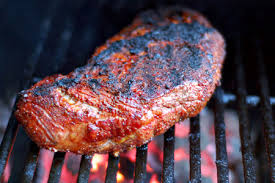sear
英 [sɪər]
美 [sɪr]
- vt. 烤焦;使…枯萎
- vi. 干枯;烧焦;凋谢
- adj. 枯萎的;烤焦的
- n. 烙印;烧焦痕迹
- n. (Sear)人名;(英)西尔
星级词汇:

记忆方法
1. s- (烧,烧伤) + ear => sear : 烧耳朵,烧伤了耳朵。
中文词源
sear 烧灼,灼伤
来自古英语 searian,使干枯,使枯萎,来自 Proto-Germanic*saurajan,使干枯,来自 PIE*saus, 干的,词源同 sere.
英语词源
- sear (v.)
- Old English searian (intransitive) "dry up, to wither," from Proto-Germanic *saurajan (cognates: Middle Dutch soor "dry," Old High German soren "become dry"), from root of sear "dried up, withered" (see sere). Meaning "cause to wither" is from early 15c. Meaning "to brand, to burn by hot iron" is recorded from c. 1400, originally especially of cauterizing wounds; figurative use is from 1580s. Related: Seared; searing.
权威例句
- 1. I distinctly felt the heat start to sear my throat.
- 我分明感觉到嗓子开始烧得难受。
- 2. Do you think just paying money entitles you to sear a man's flesh?
- 你以为只要出了钱就可以把别人的身体用花炮乱烧 吗 ?
- 3. Some of the particles clog my smaller passages and some actually sear my tissues.
- 有些微粒堵塞我的小气道,有些甚至使我的组织凋萎.
- 4. Pan sear steak, fry until both sides Remove and cut into pieces.
- 平底锅中放少许油,烧热后放下牛排, 大火煎黄表面,两面都煎黄后夹出,切成块.
- 5. Father says:'sun temperature is very high, meet a person sear. "
- 父亲说: “ 太阳温度很高, 会把人烤焦的. ”